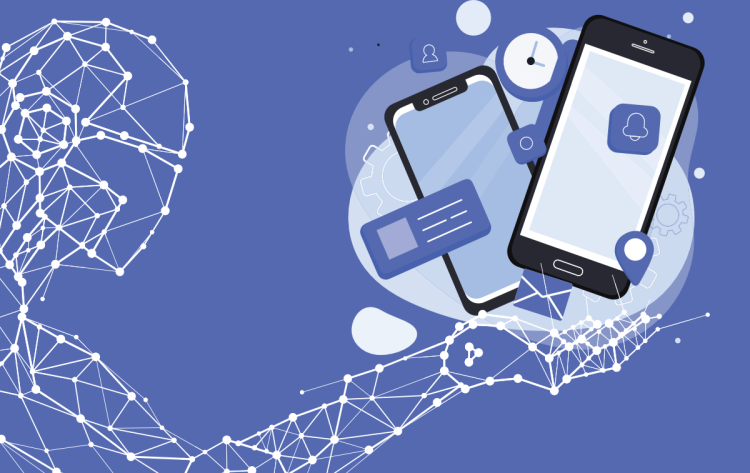Uzma Athar
Discover the promising opportunities that supplement teachers in the AI-driven future of education. Learn how artificial intelligence revolutionizes teaching roles, enhances personalized learning, and creates new avenues for collaboration.
Introduction
As the future of education unfolds, the integration of artificial intelligence (AI) presents a wealth of exciting opportunities for teachers. This article explores the transformative impact of AI on teaching roles and delves into the possibilities it offers for personalized learning and collaborative teaching environments.
AI Revolutionizing Teaching Roles
Artificial intelligence is not here to replace teachers. Instead, it is a powerful tool that revolutionizes teaching roles. With AI-powered technologies, teachers can use intelligent tutoring systems and adaptive learning platforms to provide personalized guidance and tailored instruction to students. It enables teachers to focus on fostering critical thinking, creativity, and meaningful interactions in the classroom.
Personalized Learning Made Possible
One of the most significant advantages of AI in education is the ability to deliver personalized learning experiences. AI algorithms analyze student data to identify individual learning gaps, preferences, and strengths. Armed with this knowledge, teachers can customize instruction to meet the unique needs of each student, promoting engagement, motivation, and academic success.
Collaborative Teaching Environments
AI also opens up new avenues for collaboration among teachers. Intelligent chat-bots can handle routine inquiries, freeing up teachers’ time to engage in more meaningful interactions with students and colleagues. Furthermore, AI-powered tools facilitate seamless collaboration and resource sharing, enabling teachers to exchange ideas, best practices, and innovative teaching strategies. With AI, teachers can build a vibrant professional network and continually enhance their pedagogical approaches.
Empowering Data-Driven Decision Making
In the AI-driven future of education, data analysis plays a pivotal role. AI-powered analytics provide teachers with valuable insights into student performance, progress, and areas that require additional support. With this knowledge, teachers can make data-driven decisions to identify effective teaching methods, implement targeted interventions, and ensure optimal student outcomes.
Embracing Technological Innovations
Technology plays a significant role in education, and AI amplifies its impact. Teachers can embrace AI-powered tools such as virtual reality, augmented reality, and adaptive learning platforms to create immersive and interactive learning experiences. These technologies empower students to explore complex concepts, collaborate with peers, and develop essential skills for the digital age.
Up-skilling for Success
As AI continues to shape the future of education, teachers must be prepared to adapt and upskill themselves. Professional development programs should emphasize digital literacy, data analysis, and AI integration strategies. By acquiring these skills, teachers can harness the full potential of AI in their classrooms and nurture a new generation of digitally proficient learners.
Ethical Considerations and Responsible AI Use
While AI brings immense opportunities, it also raises ethical considerations. Teachers and policymakers must prioritize responsible AI use, ensuring transparency, fairness, and privacy protection. Addressing the concerns of algorithmic biases and data security is crucial to building trust and ensuring equity in AI-powered education systems.
Real-Life Examples
Here are some real-life examples that demonstrate the exciting opportunities for teachers with AI in the future of education:
- Adaptive Learning Platforms: AI-powered adaptive learning platforms, such as DreamBox and Knewton, use intelligent algorithms to analyze student data and dynamically adjust the content and pace of instruction. These platforms provide personalized learning paths for each student, allowing teachers to focus on individualized support and intervention.
- Intelligent Tutoring Systems: Systems like Carnegie Learning’s MATHia and IBM’s Watson Tutor offer personalized tutoring experiences. These AI tutors can identify student misconceptions, provide tailored explanations, and targeted practice exercises to enhance understanding. Teachers can engage these systems to supplement classroom instruction and provide personalized guidance.
- Virtual Reality (VR) and Augmented Reality (AR): VR and AR technologies offer immersive learning experiences that engage students in interactive and realistic simulations. For example, Google Expeditions uses VR to transport students to virtual field trips, enabling them to explore historical sites, dive into the ocean, or even journey into space. Teachers can incorporate these technologies to bring lessons to life and enhance student engagement.
- Intelligent Grading Systems: AI-powered grading systems, such as Gradescope and Turnitin’s Gradescope, streamline the grading process by automatically assessing objective assignments, providing feedback, and generating detailed reports. It saves teachers valuable time, allowing them to focus more on targeted feedback and supporting student growth.
- Language Learning Apps: AI-driven language learning apps, like Duolingo and Babbel, use adaptive algorithms to personalize language instruction based on individual progress and learning styles. Teachers can recommend these apps to supplement classroom lessons, allowing students to practice language skills outside of class and receive immediate feedback.
- Data Analytics Platforms: Data analytics platforms, such as Microsoft Power BI and Tableau, enable teachers to analyze student performance data, identify trends, and make data-informed instructional decisions. These tools empower teachers to personalize instruction, track student progress, and intervene when necessary.
These examples elaborate on how AI transforms education by providing innovative tools and technologies that enhance teaching and learning experiences. By incorporating these AI-powered solutions, teachers can create dynamic and personalized learning environments that cater to the unique needs of each student.
Don’t forget to Subscribe our channel & Press Bell Icon.
Conclusion
The future of education is associated with the potential of artificial intelligence. By embracing AI, teachers can reimagine their roles, deliver personalized learning experiences, foster collaboration, and make data-driven decisions. Through continuous upskilling and responsible AI integration, teachers can unlock the transformative power of technology and shape an educational landscape that prepares students for the challenges and opportunities of tomorrow.
Subscribe our website for latest updates:
https://republicpolicy.com/shop/
Read More















